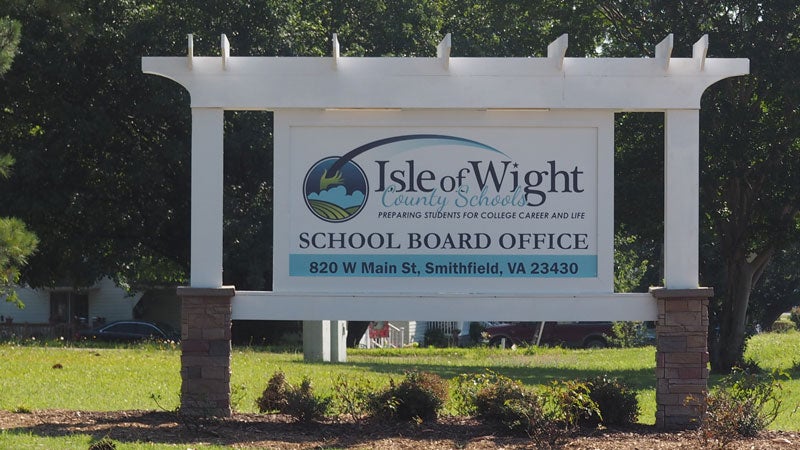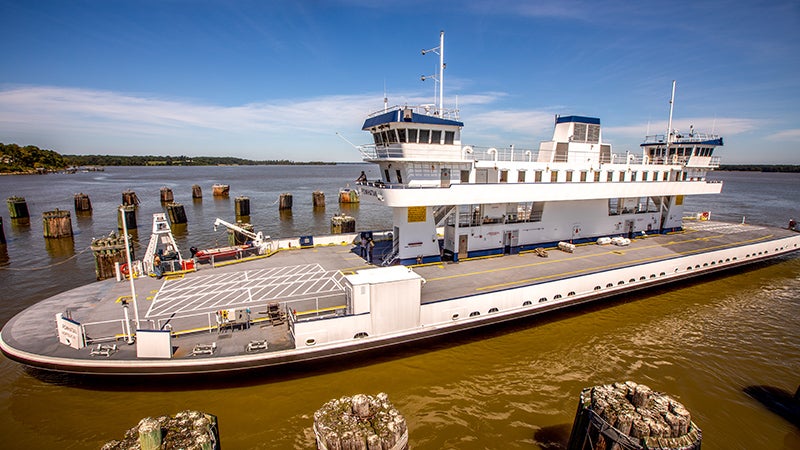School Board to discuss 2024-25 budget cuts
Published 4:11 pm Thursday, May 30, 2024

- File photo
Isle of Wight County’s School Board plans to discuss budget cuts on June 13 to stay within its lower-than-requested funding allocation from county supervisors for the coming school year.
The supervisors voted May 17 to adopt a $107 million 2024-25 budget that allocates just under $33 million to the school system.
The School Board had voted in March to adopt its own $102 million 2024-25 budget that requested a $5 million increase in local funding for annual operating costs. The amount given equates to a $2.7 million, or 8%, increase over the $30.4 million supervisors approved last May for the current school year.
School Board Chairman Jason Maresh, in a May 8 email, contended to Board of Supervisors Chairman Joel Acree and Vice Chairman Don Rosie that the funding would cover the local share of state-mandated 3% raises for school employees but not the annual increases teachers receive under the division’s 35-step pay scale.
“At this time there is not a step included with that 3%, so it’s a 3% on the current year’s pay,” said Isle of Wight County Schools Human Resources Director Laura Sullivan at a May 28 School Board meeting.
But aside from that, IWCS is waiting on final state numbers before proposing any additional changes to its budget based on the supervisors’ allocation, newly hired Chief Financial Officer Liesl DeVary told the School Board.
State funding is allocated to public school divisions using the Composite Index, a Virginia Department of Education formula for evaluating each division’s ability to pay. IWCS was rated at 0.37 for the 2023-24 school year, meaning it’s expected to cover 37% of the cost of any pay increase.
IWCS has the fourth highest composite index among 14 Hampton Roads school divisions, according to a comparison included in IWCS Superintendent Theo Cramer’s initial draft budget. Of the division’s roughly 800 employees, 417.33 received state funding, albeit at a lower rate than what IWCS actually pays, during the 2023-24 school year.
Maresh’s May 8 email to the supervisors had warned the lower-than-requested local funding “may result in the following priorities being unfunded for the 2024-2025 school year.”
The Governor’s School
IWCS is anticipating a $53,000 increase in the tuition it pays to The Governor’s School for the Arts and the Governor’s School for Science and Technology, two regional schools located in Norfolk and Hampton, respectively. The Governor’s School for the Arts provides programs in dance, instrumental and vocal music and theatre, while the Governor’s School for Science and Technology offers an advanced science, math and engineering-focused curriculum.
Without additional funding, the only other option for IWCS to absorb the tuition increase is to reduce the number of slots for students from Smithfield and Windsor high schools, a document attached to Maresh’s May 8 email contends.
Special education costs
IWCS is also anticipating a $60,192 tuition increase from the Southeastern Cooperative Educational Programs, or SECEP, a regional organization serving students with special needs from Isle of Wight, Suffolk, Franklin, Southampton, Chesapeake, Portsmouth and Norfolk public schools that receives funding from each member division and the VDOE. SECEP offers multiple programs, including Re-ED, which serves students ages 5-21 identified as having an emotional disability that prevents them from being able to maintain appropriate behavioral control in previous schools.
“This will have a direct impact on our Special Education (SPED) students,” states the attachment.
The allotted local funding also won’t cover nearly $768,000 in new instructional positions, including three requested special education teachers and three instructional aides, which could increase class size “at all levels” and creates the “potential need to cut in other areas to meet federal and state SPED mandates,” the attachment contends.
IWCS Director of Special Education Patricia Magner told the School Board on May 9 she had two “clinicians” – a group of employees that includes speech pathologists, psychologists, social workers and therapists – who were being paid $10,000 less than they could make in neighboring school divisions. As of May 8, the $177,675 in pay scale adjustments for clinicians was listed in the attachment to Maresh’s email as being potentially unfunded, though the School Board later voted on May 28 to adopt a separate 35-step clinician salary scale with base pay ranging from $58,000 to more than $110,000 based on experience, advanced degrees and certifications.
Facility maintenance
IWCS contracts with ABM for maintenance of its nine schools, and is anticipating a 3% increase in costs for 2024-25. A lack of additional funding to absorb the increase “may certainly result in fewer custodians for the schools” and “instead of adding positions as principals and teachers requested, we may need to eliminate some positions,” the attachment states.
IWCS had further requested to double the $250,000 allocated this year for unexpected facility repairs to $500,000, but instead received level funding. The $250,000 allocated for 2024-25 “would be exhausted with just one or two” of four known needs, the attachment contents. These needs include fixing a sinkhole at Windsor High, a new generator for Windsor Elementary, repairs to Westside Elementary’s heating, ventilation and air-conditioning controls and a new well at the student-run farm behind Windsor Elementary for high school agriculture students.
Career and technical education costs
IWCS contends the allotted local money won’t fund a proposed patient care technician teacher and thus will require the division to return $90,000 in grant money intended to fund the career and technical education program. Nor does it presently fund $73,914 in identified updates to CTE equipment the division debuted in 2017, some of which is “already outdated and in need of substantial repair that can’t be funded,” the attachment states.
Bus repairs
Cramer had proposed using $735,000 of his initially requested $5 million increase in operating funds to purchase five new school buses annually, plus $2.2 million for the one-time purchase of an additional 15, citing that roughly a third of the division’s buses have reached the 15-year lifespan and/or 300,000-mile limit when it’s customary to begin looking into replacements. The School Board has yet to say how many buses can be funded with the operating and capital money the supervisors have allotted. The attachment had estimated as of May 8 that the local funding wouldn’t cover $70,655 in additional money for bus maintenance, potentially leading to an increased number of double-back routes.
Student laptops
The attachment contends the local funding won’t cover $422,000 for student laptop and tablet devices and repairs. Though a change in the type of devices issued to students is proposed, there is a “potential reduction” of the division’s K-12 1-to-1 device-to-student initiative, the attachment warns.
Field trips
All school trips will need to be funded by parents for lack of $50,000 in requested local funding to cover the cost, the attachment contends.
Athletic events
There is “potential for canceled games” due to lack of $70,000 in requested funding for athletic and band equipment, uniforms, officials and security, the attachment contends.
Supervisor Renee Rountree, who at the May 17 meeting described the local funding allotment as “incredibly generous” and objected to being blamed for the School Board’s proposed budget cuts, had urged the School Board at that meeting to give only a 1.5% raise, rather than 3%, which is allowed under state law but would result in IWCS receiving a prorated share of the $142.7 million in state funds earmarked for the raises, and to use the savings to fund other priorities.





